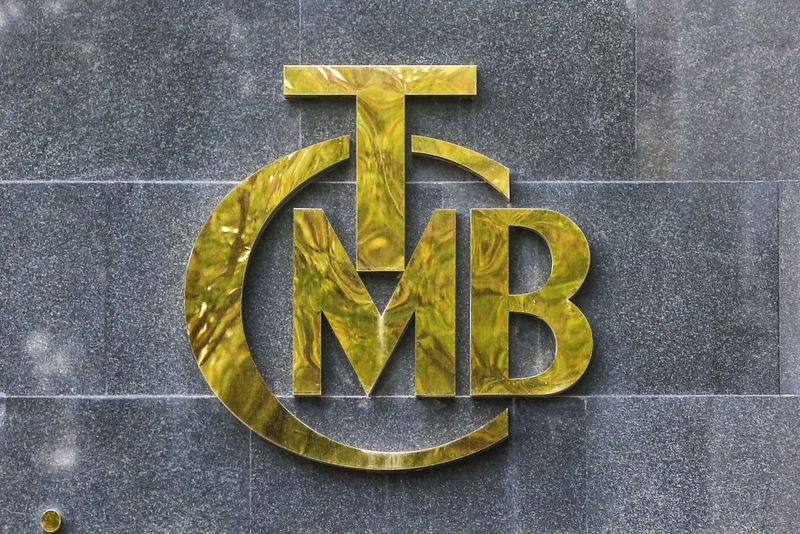By Jorgelina do Rosario
LONDON (Reuters) -Turkey has under-delivered on rate hikes for a second month, but foreign investors are as yet unfazed and expect fresh money flows, cooling domestic credit and rising currency reserves to provide some breathing space to the battered emerging market.
Policymakers hiked interest rates by 250 basis points to 17.5% in their second meeting under new Governor Hafize Gaye Erkan on Thursday, continuing to reverse the low-rates policy that had been favoured by President Tayyip Erdogan and promising more tightening and additional measures.
While that leaves the benchmark well short of inflation, which is running at almost 40%, the direction of travel is the right one, fund managers and analysts said.
"The country should avoid large balance of payments challenges for now," said Nick Eisinger, fund manager for emerging markets fixed income at Vanguard.
"It is hard to establish when pressure will arise again, but it might not be for a while."
The country's international bond prices clung to multi-month highs, with shorter-dated bonds trading just below par.
Investors were betting the government would try to avert a recession ahead of local elections in March, and were reassessing the timing of much needed further rate hikes, said Liam Peach, senior emerging markets economist at Capital Economics.
"There is a huge gap between rates and inflation, but investors still have faith in this policy shift," Peach said. "They will tolerate a gradual tightening cycle if the key rate rises towards 30% at the end of the year."
International bonds are still widely held by foreign investors, though much less so the domestic ones exposed to the lira currency's wild swings.
However, that might also be changing said Paul McNamara, a London-based investment director at GAM Investments, pointing to the lower trajectory of domestic credit growth - a potential signal that Turkey might be moving away from red-hot growth that had fuelled recent boom-and-bust cycles.
"As long as credit growth keeps heading down, we are becoming more positive on Turkey," he said. "We haven't put money to work yet, but I'd say we're an awful lot closer to it."
The central bank on Thursday introduced a 15% minimum reserve requirement for FX-protected lira deposits in a move that bankers estimated would suck 450-500 billion Turkish lira of liquidity from the market.
BETTER BUFFERS
Rising central bank reserves are another positive sign.
Net international reserves rose to $13.25 billion in the week to July 14, continuing a rebound from record lows after the bank stopped using them to support the lira.
The currency has lost more than 30% so far this year and hit a record low of 27 to the dollar this week..
Investors are focused on Thursday's central bank's inflation report, the first under Erkan and the first time she will hold a news conference since her appointment.
"I would strongly expect a clear roadmap, especially when there are increased pressures of further inflation," said Emre Akcakmak, a senior consultant at emerging markets fund manager East Capital.
JPMorgan (NYSE:JPM) raised its inflation outlook for Turkey after the rate hike, now expecting year-end inflation at 57% versus 50% previously.

Meanwhile, new money flows provide much needed relief. Summer tourism will boost hard-currency revenues though investors want to see more details on new loans from the Gulf, after the United Arab Emirates and Turkey inked several deals estimated to be worth $50.7 billion.
"It's still not clear in what shape and timing the country will get the flows, but it will definitely help," said Cagri Kutman, senior fixed income sales at KNG Securities. "That is why people are still giving (the government) the benefit of the doubt."